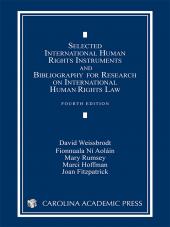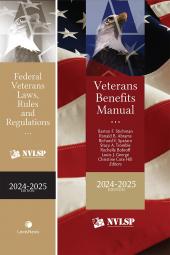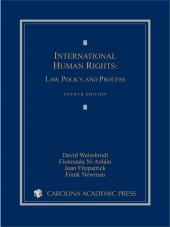International Human Rights: Law, Policy, and Process
Select subscription type
Terms & conditions
Subscribers receive the product(s) listed on the Order Form and any Updates made available during the annual subscription period. Shipping and handling fees are not included in the annual price.
Subscribers are advised of the number of Updates that were made to the particular publication the prior year. The number of Updates may vary due to developments in the law and other publishing issues, but subscribers may use this as a rough estimate of future shipments. Subscribers may call Customer Support at 800-833-9844 for additional information.
Subscribers may cancel this subscription by: calling Customer Support at 800-833-9844; emailing customer.support@lexisnexis.com; or returning the invoice marked "CANCEL".
If subscribers cancel within 30 days after the product is ordered or received and return the product at their expense, then they will receive a full credit of the price for the annual subscription.
If subscribers cancel between 31 and 60 days after the invoice date and return the product at their expense, then they will receive a 5/6th credit of the price for the annual subscription. No credit will be given for cancellations more than 60 days after the invoice date. To receive any credit, subscriber must return all product(s) shipped during the year at their expense within the applicable cancellation period listed above.
Subscribers receive the product(s) listed on the Order Form and any Updates made available during the annual subscription period. Shipping and handling fees are not included in the annual price.
Subscribers are advised of the number of Updates that were made to the particular publication the prior year. The number of Updates may vary due to developments in the law and other publishing issues, but subscribers may use this as a rough estimate of future shipments. Subscribers may call Customer Support at 800-833-9844 for additional information.
Subscribers may cancel this subscription by: calling Customer Support at 800-833-9844; emailing customer.support@lexisnexis.com; or returning the invoice marked 'CANCEL'.
If subscribers cancel within 30 days after the product is ordered or received and return the product at their expense, then they will receive a full credit of the price for the annual subscription.
If subscribers cancel between 31 and 60 days after the invoice date and return the product at their expense, then they will receive a 5/6th credit of the price for the annual subscription. No credit will be given for cancellations more than 60 days after the invoice date. To receive any credit, subscriber must return all product(s) shipped during the year at their expense within the applicable cancellation period listed above.
Product description
View a sample of this title using the ReadNow feature
To purchase a printed version of this title, please visit www.caplaw.com.
The new edition of the International Human Rights casebook has been streamlined to focus on the core elements of the subject, while providing ample coverage of core topics for instructors. Section 1 provides both theoretical and practical context for our current International Human Rights Law (IHRL) Framework, Section 3 examines regional differences regarding how IHRL is implemented, and in Section 5 students examine how IHRL intersects with many different fields of law, including humanitarian law, criminal law, and labor law. Other sections examine sources of international law and specific, substantive human rights to provide a comprehensive review.
epub is protected by Adobe DRM.
eBooks, CDs, downloadable content, and software purchases are noncancelable, nonrefundable and nonreturnable. Click here for more information about LexisNexis eBooks. The eBook versions of this title may feature links to Lexis+® for further legal research options. A valid subscription to Lexis+® is required to access this content.
Related products
-
 Selected International Human Rights Instruments and Bibliography for Research on International Human Rights Law$46.99
Selected International Human Rights Instruments and Bibliography for Research on International Human Rights Law$46.99 -
New!Preorder
 Veterans Benefits Manual and Federal Veterans Laws, Rules and Regulations (Bundle)New!Estimated: November 15, 2024$349.00
Veterans Benefits Manual and Federal Veterans Laws, Rules and Regulations (Bundle)New!Estimated: November 15, 2024$349.00 -
Preorder
 AHLA Fundamentals of Health Law (Non-Members)$249.00
AHLA Fundamentals of Health Law (Non-Members)$249.00
 Lexis Nexis
Lexis Nexis 
